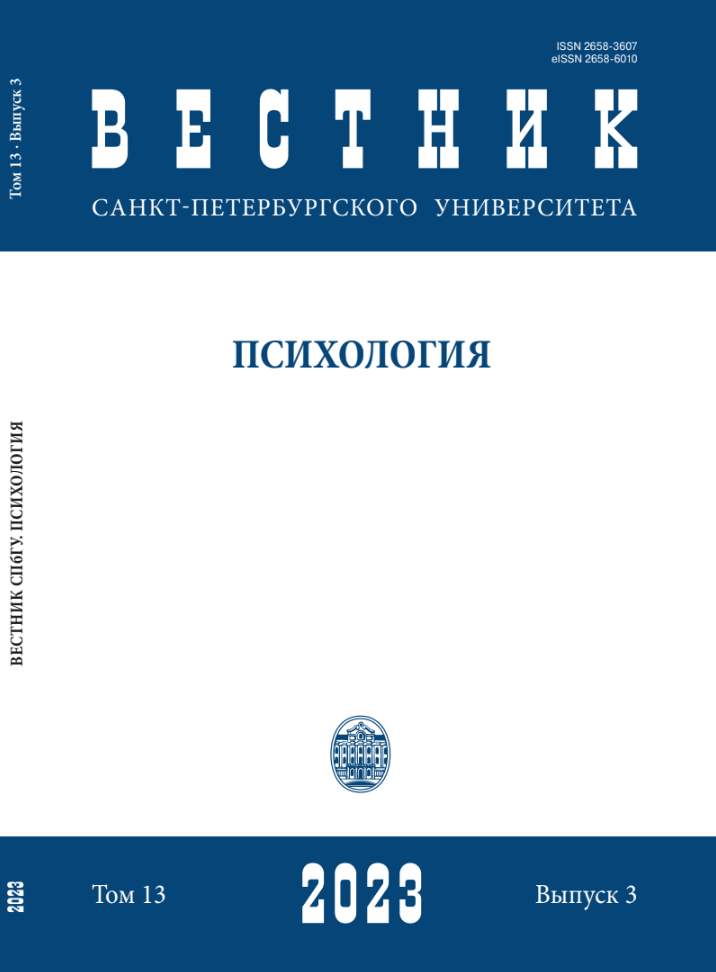Ordinary ideas about self-determination of personality: Structure and phenomenology
DOI:
https://doi.org/10.21638/spbu16.2023.305Abstract
The article is devoted to the description of ordinary ideas about the phenomenon of selfdetermination, which is actively discussed in modern scientific literature. The theoretical foundations for the development of the concept of “self-determination” and a multilevel complementary model of this phenomenon are presented. The results of the empirical study of common ideas about this concept as a way of empirical verification of the theoretical model and clarification of its content are presented. The study was conducted using a semi-structured interview, the sample consisted of 72 respondents (mean age — 23.7 (SD = 5.34; M0 = 21; Me = 22)). It was revealed that most of the respondents had not heard about the concept of self-determination before (63.9%), however, they can roughly describe its content. Most often, when describing self-determination, there are such characteristics as self-understanding, selfdetermination and self-knowledge; independence in behavior; the ability to make decisions; control over one’s life; striving for results and achievements; the presence of a pronounced motivation for action; awareness; as well as indications of connection with the concepts of freedom, responsibility, reflection. The revealed common ideas are consistent with scientific ideas about self-determination as a set of characteristics and processes of an individual’s activity, which are distinguished by purposefulness, arbitrary regulation and relative freedom from external factors. More than half of the respondents (60%) consider themselves to be self-determined people, and when describing other people, they consider them to be self-determined, based primarily on their ability to overcome life’s obstacles. Comparison of the data obtained with the developed theoretical complementary model of self-determination showed that in ordinary concepts, it is possible to distinguish the components of all three levels of the complementary theoretical model: meaningful self-determination (highest level), activity self-determination (middle level), and spontaneous self-determination (basic level). Mostly, ordinary ideas contain characteristics of the activity level, however, when differentiating the concepts of self-regulation and self-determination, the respondents point to the semantic accents of the phenomenon of self-determination: a mature attitude and responsibility for building one’s life.
Keywords:
self-determination, personality, subjectness, autonomy, freewill, self-organization, self-regulation, semantic choice, behavior determination, level model
Downloads
References
References
Downloads
Published
How to Cite
Issue
Section
License
Articles of "Vestnik of Saint Petersburg University. Psychology" are open access distributed under the terms of the License Agreement with Saint Petersburg State University, which permits to the authors unrestricted distribution and self-archiving free of charge.




